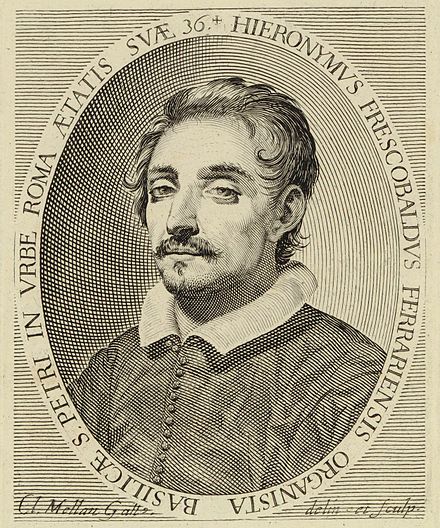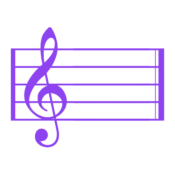Table of Contents
Introduction
In the keyboard field, the first great musician who became famous for his link with instrumental practice was Girolamo Frescobaldi. Without Frescobaldi, the piano technique we know today would not be what it is. In this article I would like to introduce you in the simplest, most concise and practical way possible to his figure, skipping all that information that you could find anywhere online and going directly to the point of the salient features of his biography and his work.

Ferrara, Flanders… And Then Rome
Of Frescobaldi we know that he was born in Ferrara in 1583, that he was a pupil of the most famous composer of the Este court, and that at the departure of the Este from Ferrara he chose as master the apostolic nuncio Bentivoglio and moved to Flanders. All the rest of his life. with the exception of two other short stays elsewhere, it took place in Rome: here he died at the age of 59, in 1643.

The Toccata
Frescobaldi is inextricably linked to that phase of transition towards tonality, aimed at post-Renaissance languages. He expanded Monteverdi’s conceptions, extending them to the keyboard field. Of course, the Toccata, keyboard composition par excellence, was the compositional style in which most of all the Ferrarese composer was able to pour his compositional genius. Frescobaldi completely revolutionized this kind of composition, distancing it light years from the use that his predecessors had made of it: first of all, he made his touches very varied in content, alternating steps of profound lyricism with virtuosic sections. In this way he prepared fertile ground for harmonious experimentalism. In fact, if we analyze a touch of Frescobaldi, we realize that he managed to effectively merge the modal and tonal aspects into original hybrid statements. We find in the same composition already tonal cadence formulas, together with melodies with a still modal character. I leave you listening to one of his Toccate performed by Maestro Bartoccini. Below you will find the paper disappeared to be able to play them to your instrument. Do not forget that if you make the purchase of the score from the banner below, a small part of the amount will go to support this blog.
Virtuosity At The keyboard
But Frescobaldi did not only try his hand at the Toccata: he treated all the forms in use of the time, such as the game, the whim, the fantasy. Beyond that, as we can imagine he was a great performer on the keyboard. He indicated to arpeggio the dissonances and chords, to seek an attack as slow as possible, to perform the embellishments quickly.
Instrumental Music VS Vocal Music
What we have said about Frescobaldi opens the long debate between two compositional forms that will find so much luck, in alternate phases, in the seventeenth century: we are talking about the instrumental and vocal forms. Ercole Bottrigari was the first to have grasped with impressive foresight how polyphonic music was aimed at a few, while monodic music delighted all listeners. In fact, instrumental music continued, even after the opening of the first public theater dedicated to opera in music, which we talked about in an article that you can find here, to remain an asset reserved for a small circle of connoisseurs. We have news of the first public instrumental concert only in 1672, so at the end of the century, at a time when instrumental instruction was certainly not already widespread (a fact that makes us easily guess how a real diffusion of this kind will not occur until at a later time). The expressive potential of this genre, however, will already be intuited by Frescobaldi: through his compositions we read with considerable advance the intent to give the keyboard genre an autonomous articulation, a compositional complexity unprecedented until then
Conclusions
For this article on Girolamo Frescobaldi is everything, do not forget to follow us daily so as not to miss the news on the composer from Ferrara: we will have the opportunity to talk about it in the articles dedicated to musical analysis, when we review his works. You can leave your email in the pop-up box to activate notifications and not miss future publications, see you in tomorrow’s article!
- History Of The Piano – The Fortepiano - July 12, 2022
- Curt Sachs – History Of Organology At a Glance - July 8, 2022
- Giuseppe Verdi – Rigoletto, Il Trovatore, La Traviata - June 29, 2022
